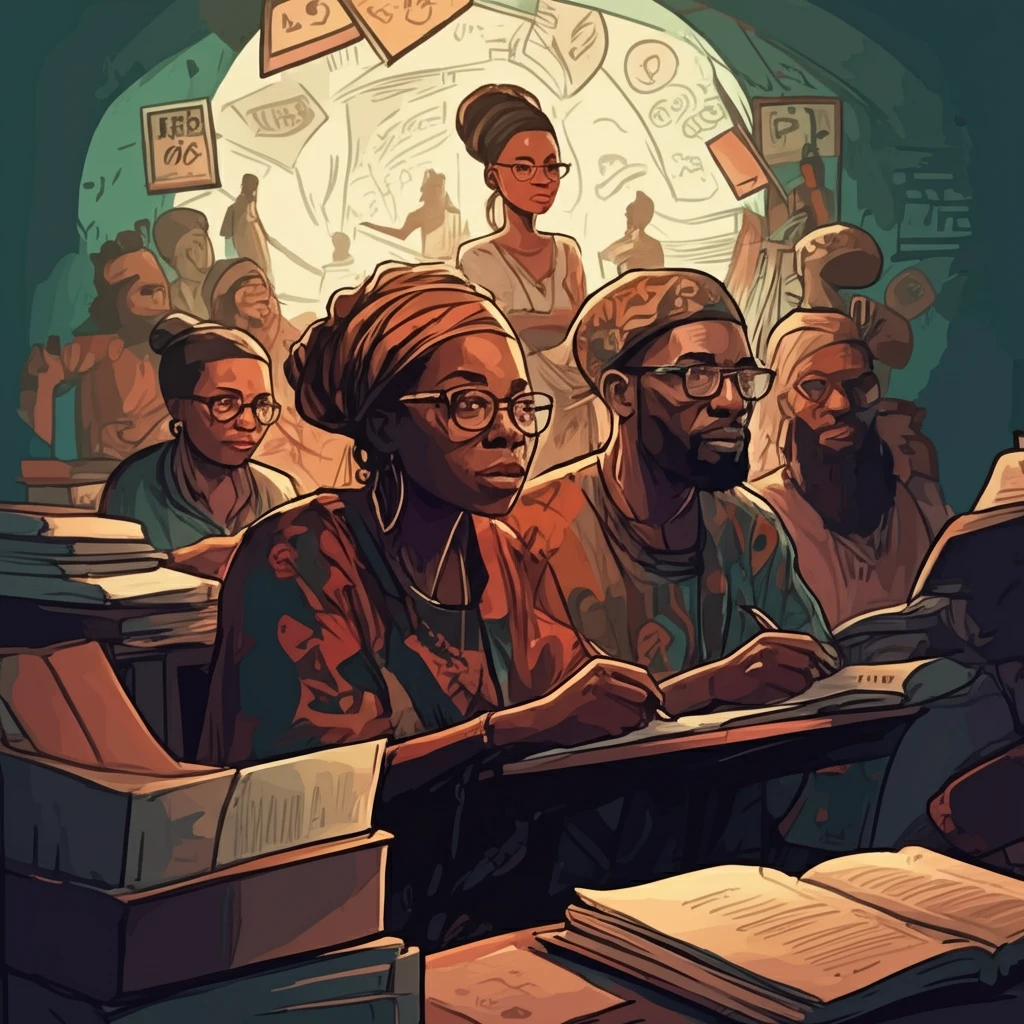
Unlock Your Potential: Why Adult Literacy Programs are Essential for Nigeria's Future
"Discover how adult literacy initiatives can empower individuals, boost the economy, and bridge the education gap in Nigeria."
Education is a fundamental human right, regardless of age. The global emphasis on eradicating illiteracy, highlighted by the Universal Declaration of Human Rights and the Education for All (EFA) movement, underscores the importance of accessible education for all citizens. In Nigeria, despite progress in formal education, a significant portion of the adult population lacks basic literacy skills, hindering their ability to participate fully in society and the economy.
Recognizing this gap, there's a growing need to revitalize adult literacy programs. These programs offer a pathway for those who missed out on early education or seek to improve their skills, particularly in rural areas where educational opportunities are limited. By providing access to literacy, numeracy, and essential life skills, adult education initiatives can empower individuals to enhance their living conditions and contribute to national development.
This article explores the critical role of adult literacy in Nigeria, examining its historical context, current challenges, and the potential of innovative solutions like Adult Literacy Colleges. It emphasizes the need for renewed commitment and strategic action to ensure that every Nigerian has the opportunity to unlock their potential through education.
Why is Adult Literacy Crucial for Nigeria's Development?

Adult literacy is not just about reading and writing; it is a powerful tool for personal and societal transformation. Functionally literate adults are better equipped to secure employment, manage their finances, and participate in civic life. They are also more likely to prioritize their children’s education, creating a ripple effect that benefits future generations.
- Economic Empowerment: Literacy skills enhance employability and enable adults to access better-paying jobs.
- Improved Health Outcomes: Literate adults are more likely to understand health information and make informed decisions about their well-being.
- Social Inclusion: Literacy promotes participation in community affairs and fosters a sense of belonging.
- Reduced Poverty: By increasing economic opportunities and improving health, literacy helps break the cycle of poverty.
- Gender Equality: Adult literacy programs can empower women, who often face greater barriers to education.
Revitalizing Adult Literacy for a Brighter Future
Investing in adult literacy is an investment in Nigeria’s future. By prioritizing education and providing the resources needed to support effective programs, Nigeria can empower its citizens, strengthen its economy, and build a more equitable society. It is time to renew our commitment to adult literacy and create opportunities for all Nigerians to reach their full potential.
